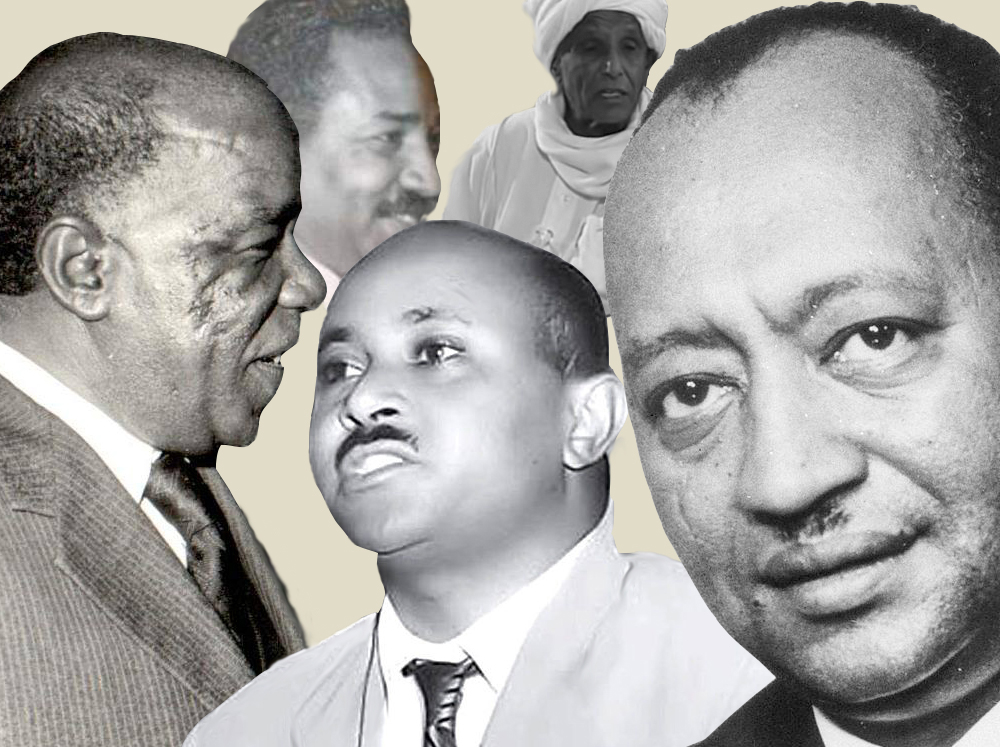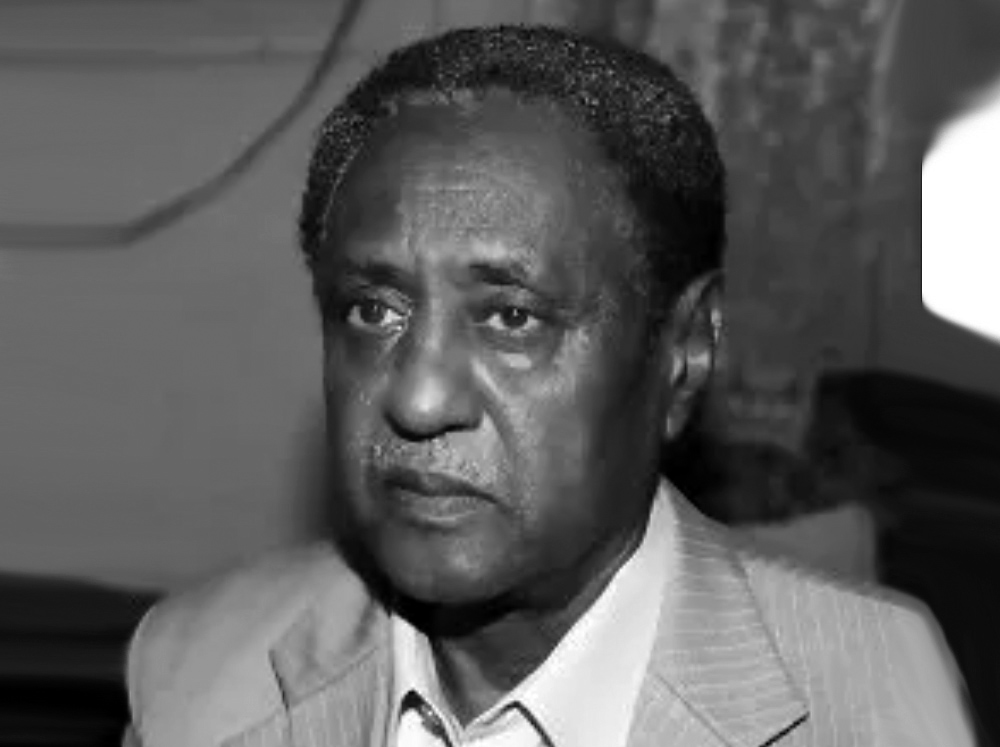
Abdul Khaleq Mahjoub... Hidden Aspects of Rashids Life (1/2)
Sidiq Mihesi
I published three articles in Al-Midan newspaper about hidden aspects of the life of the martyr and thinker Abdul Khaleq Mahjoub, the secretary of the Communist Party. Aside from the autobiographical information known to people about him as a political leader who had his struggles in the national movement and his perspectives on issues of change in Sudan from his Marxist viewpoint, as well as his intellectual conflicts within and outside his party, our professor, as our friend and researcher Abdullah Ali Ibrahim refers to him, possessed other qualities that I, as a journalist who relied on him as one of my news sources during the 1960s, have observed.
What led me to this perspective is that many people, and some still do, viewed him as if he were a devil whose sole mission was to spread disbelief and atheism among people and incite Muslims to abandon their religion. This twisted understanding was further propagated by the Muslim Brotherhood, who have not put down this weapon even when they were in the corner of history, still using it against anyone who disagreed with them. They even added secularism to it, making it akin to communism. However, the whirlwind of the September revolution uprooted them from their roots, revealing them as thieves and professionals that Sudan had never witnessed the likes of. Abdul Khaleq passed away, leaving behind only his wedding ring and watch on the prison directors desk, instructing them to be handed over to his wife, while their leader perished, leaving us with a major catastrophe that left political pundits struggling to describe.
In his book Democracy on the Scale, Mohammed Ahmed Mahjoub stated that the era of tolerance in Sudan ended with the assassination of Abdul Khaleq Mahjoub. Abdul Khaleq was referring to the tolerance that Sudanese were known for as a culture throughout their history. With these lines and this subject, Abdul Khaleq, the Sudanese, and the secretary of the Sudanese Communist Party, I was speaking as part of a group of researchers on the occasion of his ninetieth anniversary, an event held at the House of Heritage, managed by our friend Ismail Al-Fahil in Khartoum on September 23, 2020. Since most of the speakers had discussed Abdul Khaleq Mahjoubs political legacy from their respective viewpoints, I felt compelled to share my personal experience as a journalist with the man, which included some of his social aspects, such as his relationships with journalists on the sidelines of politics, close but not entirely within it.
In Al-Sudan Al-Jadid newspaper in the 1960s, Abdul Khaleq Mahjoub was one of my news sources whenever there was a political event that required the partys commentary. I always made sure to contact him after five in the evening, as per his request. He never minded the questions I asked, even if they were mixed with rumors. This was his approach with all journalists, including the party-affiliated ones who used to publish inaccurate news against the Communist Party. He never turned them away when they knocked on his office door or visited his home. He was a humble thinker and a true democratic leader with an open mind for accepting opposing opinions.
In the 1960s, in the evenings hosted by Prime Minister Mohammed Ahmed Al-Mahjoub at his home in Khartoum, when the country received guests from Egypt and Lebanon on national occasions, his friends were invited. These friends formed a mixture of Egyptian poets and writers, such as Saleh Gouda, Kamel El-Shenawi, and Ehsan Abdel Qudous, as well as completely contrasting figures like Tawfiq Al-Kholy, Ahmed Hamroush, Salah Hafez, Abdel Rahman Al-Sharkawi, and Hussein Fahmi. Right-wing poets and writers gathered alongside left-wing individuals, all revolving around Abdul Khaleq Al-Mahjoub, the romantic poet and the star of the evening, and the host of the gathering. There was no discussion here in his presence except poetry, as poetry was the magical thread that bound the invitees together.
During such occasions, Mahjoub always made sure that Abdul Khaleq was among the local invitees. Jamal Mohamed Ahmed, Tawfiq Saleh Jabril, and Mohamed Al-Mahdi Al-Majzoub were some of the local guests. He told the press on the second day that he knew the language of Saleh Gouda, Kamel El-Shenawi, and Ehsan Abdel Qudous, but the language of the friends-enemies was mastered by Abdul Khaleq Al-Mahjoub. This is the tolerance that Mahjoub referred to in his book Democracy on the Scale.
Throughout these evenings, poetry was the dominant form of expression, and Mahjoub, the king of birds, sat on the throne of creativity. He held the threads of light, and all the guests listened to him as he recited his poems with a resonant voice tinged with a gentle ruggedness. He moved among his graceful vocabulary, soaring in the realms of imagination. His poems were filled with melancholy, inspired by the passions of Lebanon, Morocco, and Italy.
And here is Abdul Khaleq discussing literature in the era of knowledge and the masterpieces of Russian literature like Dostoevsky, Chekhov, and Gorky. He explained how the Communist Party nurtured literary talents and encouraged them to write and publish. The discussion with comrades then shifted to memories of their shared struggles in Haddatoo, the prisons of Ibrahim Abdel Hadi, and Salah Bishara, who was martyred in Egyptian prisons. Those were nights when political conflicts that ended at the doors of the parliament were set aside.
The tolerance that Mahjoub spoke of leads us to a strange and astonishing scene, but I found an explanation for it from the perspective of a journalist analyzing events and situations. Who would believe that Abdul Khaleq Mahjoub had a strong friendship with Mohammed Maki Mohamed, the owner and editor-in-chief of Al-Nas newspaper? This newspaper, in many of its issues, was filled with news against the Communists and the Communist Party. Often, it published false news against Abdul Khaleq himself, accusing him of being a partner in the sulfur factory, Abu Miftah, which produced in Czechoslovakia. And the factory was said to supply the Communist Party with money.
I saw with my own eyes, as a journalist at the time, Abdul Khaleq entering the office of Mohammed Maki Mohamed for hours. We could hear their laughter, as if the host was a member of the Communist Party and the guest was a member of the Peoples Party, not the leader of the Communist Party.
Mohammed Maki had close ties with the American Embassy in Khartoum, and he didnt hide this relationship. His newspaper often republished extensive reports from Al-Mijal, the magazine affiliated with American intelligence, against the Vietnamese revolution and against the Peoples Front, which was leading the armed struggle to oust the British from southern Yemen. This meant that Maki Al-Nas, as he was known in journalistic circles, used his newspaper to serve American policy in Sudan. As for Abdul Khaleqs occasional visits to him, they were for social gatherings that held the latest political gossip. Since the Communists strongly opposed this satellite station, considering it an American spy station, and since Maki was connected to the American company responsible for it, we understand why Abdul Khaleq visited the man.
We come to Al-Sudan Al-Jadid. The late Mahmoud Medani from Al-Sahafa newspaper and I from Al-Ayyam newspaper found our friend, the great journalist Yahya Al-Awad, as its editor-in-chief. We immediately decided to shift the newspapers policy from right to left. The starting blow was when we supported Dr. Omar Osman, the dean of the College of Economics, as the left-wing candidate against Dr. Abdullah Al-Tayeb, the dean of the College of Arts and the right-wing candidate, or so it was said at the time.
The struggle for the position of the director of the University of Khartoum was at its peak after the departure of its former director, Professor Nazir Dafalla. We all wrote against Abdullah Al-Tayeb, describing him as a poet from the Age of Ignorance, right-wing, and closer to the Muslim Brotherhood. Dr. Abdullah Al-Tayeb fought his battle on the newspapers pages, publishing poems in which he fiercely criticized his opponent.
One of the most famous poems that caused reactions in literary, cultural, and even political circles was his poem Al-Khamees Al-Zahif (The Crawling Thursday), in which he threatened his opponent and vowed victory. Dr. Omar Osman did not possess the means, methods, eloquence, or literary ability to confront his provocative opponent, yet Dr. Omar Osman emerged victorious in the struggle and won the position of director. To support the left-wing line as well, we stood with the Chief Justice, Babikir Awadallah, against Ismail Al-Azhari, the President of the Sovereign Council, and Imam Al-Hadi Al-Mahdi in the presidential race to thwart the Islamic constitution project. However, the elections did not take place as they were disrupted by Jaafar Nimeirys coup on May 25, 1969.


